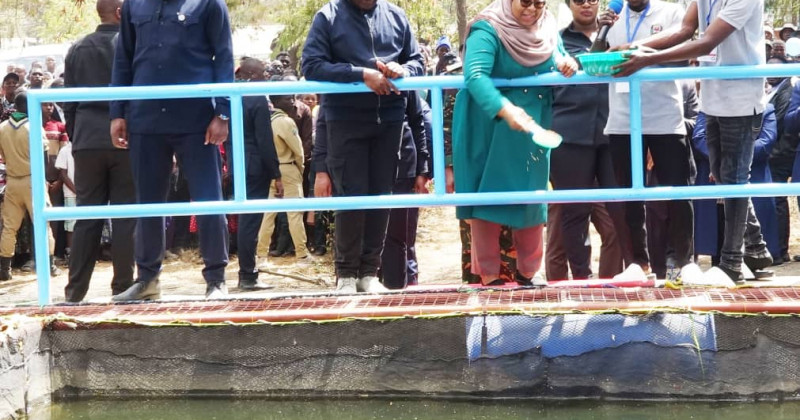Assan Ng’ombe Highlights Urgency of National Food System Transformation
The critical importance of addressing the transformation of food systems at the national level, cannot be gainsaid, according to Assan Ng’ombe, a Resilience Specialist at AGRA.
Despite significant efforts, food systems worldwide are still falling short in meeting the developmental needs of populations, leading to increased hunger globally. Ng’ombe emphasized the urgency of transforming food systems to align with the needs of people and the economic development goals of countries.
The event, held on November 2nd, convened by AGRA at their headquarters in Nairobi, Kenya, brought together key stakeholders, including GAIN, UNSDN, and WRI, to discuss collaborative efforts to achieve the Sustainable Development Goals (SDGs) and adapt food systems and land use practices to address climate change.
During his presentation, Ng’ombe highlighted the critical importance of addressing food system transformation at the national level. He pointed out that despite considerable efforts, food systems worldwide continue to fall short in meeting the developmental needs of populations, leading to increased hunger globally. Ng’ombe stressed the urgent need to transform food systems to better align with the needs of people and the economic development goals of countries.
The event aimed to facilitate knowledge sharing and discussions to catalyze the implementation of transformative processes on the ground. Ng’ombe noted that the discussions involved important knowledge partners, such as the UN Sustainable Development Network, which provided insights into the existing gaps within the food system transformation agenda, including issues related to capacities, ambition, and the resources required for driving these changes.
Ng’ombe also highlighted Kenya’s situation, where elaborate policies exist on the ground but face challenges in full implementation due to complex factors. These challenges encompass addressing immediate food needs, building medium-term resilience, and achieving long-term sustainability to respond to climate change, economic demands, and employment generation.
He emphasized the need for strategic investments in building the capacity of professionals, farmers, and staff involved in the food system transformation agenda. Ng’ombe acknowledged that these issues are complex, and falling short on implementation is not due to a lack of effort but rather the immense scope of the challenge. He emphasized that meetings like the one held play a crucial role in bringing partners together to share experiences, chart the way forward, and push for more effective action.
Additionally, Ng’ombe discussed the broader implications of food-related issues, emphasizing that food affects everyone. He highlighted the significance of addressing food loss, which contributes not only to climate action but also to poverty reduction and employment generation.
Ng’ombe emphasized that all stakeholders have a responsibility to support host governments and drive the agenda for Africa. He called for integrated approaches to development programs, focusing on addressing the most pressing issues affecting communities. Ng’ombe stressed the need for continuous dialogue and collaboration to ensure that resources, capacities, and advice are aligned.


